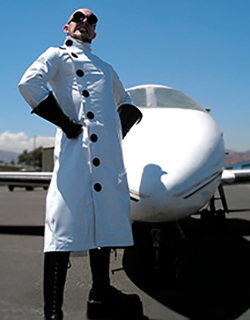WHO
WANTS THE UKRAINE – AND WHY??
 Andrew McKillop
Andrew McKillop21st Century Wire
Unless you’ve been in an underground bunker for the last month, you’d have heard that the Ukraine has gone topsy-turvy lately.
They seem to have escaped one old Soviet Union, only be reeled in by a new Soviet in the EU. There is also the problem of organized crime syndicates who have overrun the country.
Understanding the country’s recent history and following the money is important if you want to see which way the wind is blowing in Kiev…
For most Europeans, Ukraine is a gas transport corridor for bringing expensive Russian gas to Europe and Ukraine either overcharges Gazprom for gas transit fees, or does not pay Gazprom for the gas it takes for national consumption.
This Russian-Ukrainian gas game occasionally tips into gas embargoes – hitting consumers further down the line. As a geopolitical bargaining chip, conversely, Ukraine had considerable import - and weight – during the Cold War period which tapered off in 1989-91. Relatively quickly, Russia withdrew “nearly all” of its nuclear-tipped missiles, atomic warheads and nuclear military equipment and component inventories from Ukraine, in the 1990s.
That said, Ukraine is listed by human rights and corruption watchdog NGOs as one of the most corrupt countries in the world, tied with Bangladesh, Cameroon, the Central African Republic and Syria. Its postwar history following the defeat of Nazi Germany is a tragic story of Soviet megalomania, paranoia and oppression. The Nazi Germans probably killed about 15% of the total population, but about another 600,000 Western Ukrainians were arrested between 1944 and 1952, one-third executed and the remainder imprisoned in Soviet gulags or exiled to the eastern Soviet empire. Among their crimes was “non-performance” in agricultural output.
Administered by the rising political star and soon-to-be rival of Joseph Stalin, Nikita Khruschev, firstly in eastern Russian-speaking Ukraine, the kolkhoz collective-farm system was operated by chiefs selected by Khruschev. He empowered them to expel residents who “under-performed”. The kolkhoz chiefs quickly turned this into a racket protection and vendetta system for expelling their personal enemies, and the weak, the old and other “misfits”. Well over 10,000 were exiled to the eastern parts of the Soviet Union. For Khruschev, this was a highly effective policy which he recommended it for adoption across the USSR to Stalin, despite it periodically resulting in wide-area famines.

Similar to the “agro-towns” attempted by Ceaucescu of Romania, Khrushchev further destabilized Ukraine’s slowly recovering agricultural output with his scheme for population regrouping, which he later applied in Russia when he became Praesidium chief on the death of Stalin, following a classic Mafia-style power struggle with NKVD chief Beria. Beria was shot and killed with five of his associates by order of Khrushchev in Dec 1953. One of Beria’s proposed post-Stalin reform ideas was to liberate either or both East Germany and Ukraine, in exchange for cash payment by the West
GO
HERE FOR THE REST OF THE STORY...
http://21stcenturywire.com/2014/02/03/who-wants-ukraine-and-why/
http://21stcenturywire.com/2014/02/03/who-wants-ukraine-and-why/



No comments:
Post a Comment